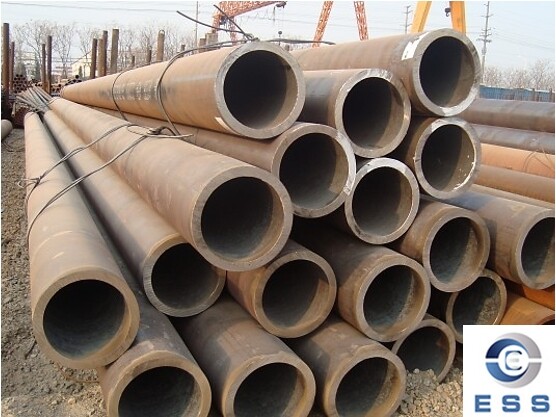
Most low-temperature, medium-temperature,
high-temperature, and ultra-high-temperature steel boiler
tubes need heat treatment to improve their mechanical properties, heat
resistance, and corrosion resistance.
Boiler tubes are one of the most important
parts of boilers. They usually refer to a metal pipe used to manufacture and
install boiler bodies and auxiliary equipment, and to transfer and convert heat
energy. According to the production method, they can be divided into seamless
steel pipes and welded
steel pipes. As an important pipeline under high temperature and high
pressure, the pressure resistance, wear resistance, toughness, and strength of
boiler tubes need to be guaranteed.
In the process of processing and using
boiler tubes, due to the effects of high temperature and high pressure, their
structure and performance are prone to change, and they may also cause safety
problems such as cracking and deformation of boiler tubes. In order to ensure the performance and safety
of boiler tubes, they need to be modified and optimized through heat treatment
technology.
Principle of heat treatment
Heat treatment is a thermal processing
process for materials, which improves their performance by changing the
organizational structure of materials. Common heat treatment processes include annealing, normalizing, quenching,
and tempering.
Among them, quenching can greatly improve the hardness and strength of steel,
but it will increase brittleness and reduce its toughness. Tempering can
restore the toughness and plasticity of the quenched material.
The role of heat treatment
1. Change the organizational structure of
the material
Heat treatment can change the grain size
and morphology of the material, and then change its mechanical properties and
electrical properties. In the heat treatment process of the boiler tube, the
grain size and morphology of the material can be changed by controlling
parameters such as temperature and time, thereby improving the strength and
pressure resistance of the pipeline.
2. Improve the hardness and strength of the
material
In the heat treatment process of the boiler
tube, quenching can greatly improve the hardness and strength of the pipeline,
thereby improving its wear resistance and deformation resistance.
3. Restore the toughness and plasticity of
the material
Although quenching can improve the hardness
and strength of the material, it will cause its toughness and plasticity to
decrease, which will cause brittle fracture problems. Tempering can restore the
toughness and plasticity of the material after quenching, thereby improving the
safety of the boiler tube.
Which boiler tubes need heat treatment
1. Low-temperature and medium-temperature
steel boiler tubes
Low-temperature and medium-temperature
steel boiler tubes are generally forged and heat treated to improve their wear
resistance, hardness and strength, and have good weldability.
2. High-temperature and
ultra-high-temperature steel boiler tubes
High-temperature and ultra-high-temperature
steel boiler tubes are generally heat treated and hot pressed to improve their
heat resistance and oxidation resistance, while reducing creep and fatigue
damage.
3. Ferritic stainless steel boiler tubes
Ferritic stainless steel boiler tubes are
generally solution treated to improve their corrosion resistance and heat
resistance, and can maintain their good weldability.
4. Austenitic stainless steel boiler tubes
Austenitic stainless steel boiler tubes are
generally stress relieved and quenched to improve their hardness and strength,
and can improve their stability and corrosion resistance at high temperatures.
Summary
Heat treatment of boiler tubes is a
necessary means to ensure their performance and safety, and can optimize their
performance by changing the material's organizational structure and mechanical
properties. Whether it is low temperature, medium temperature, high temperature
or ultra-high temperature steel boiler tube, it needs to be heat treated to
improve its mechanical properties, heat resistance and corrosion resistance.
When using boiler tubes, it is also necessary to pay attention to their
maintenance and care to extend their service life. During production and use,
attention should be paid to controlling the heat treatment parameters and
process to ensure the quality and safety of boiler tubes.













 Eastern Steel Manufacturing Co.,Ltd not only improve product production and sales services, but also provide additional value-added services. As long as you need, we can complete your specific needs together.
Eastern Steel Manufacturing Co.,Ltd not only improve product production and sales services, but also provide additional value-added services. As long as you need, we can complete your specific needs together.










